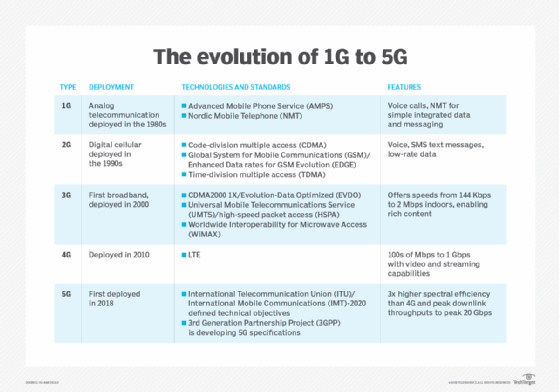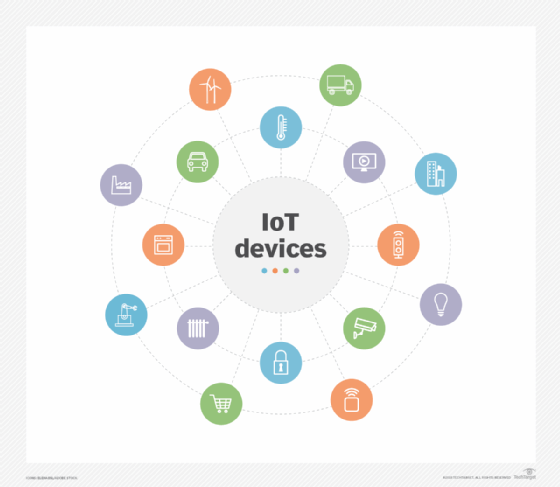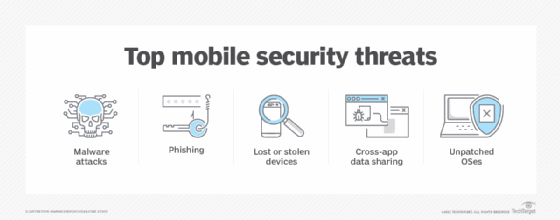data plan (mobile data plan)
What is a data plan (mobile data plan)?
A data plan is an agreement between a mobile carrier and a customer that specifies how much mobile data the user can access, usually per month, for a specific fee on a carrier network.
In today's digital era, staying connected is vital, and mobile devices have become indispensable tools for communication, work and entertainment. The seamless connectivity users enjoy is made possible through mobile data plans.
Mobile data refers to the information transmitted over cellular networks that facilitates internet access, sending and receiving emails, streaming videos, using apps and much more. The workings of a data plan, its benefits, costs and why it matters in the modern, mobile-driven world are discussed below.
How data plans work
A data plan grants users access to the internet and enables them to connect with online services and applications from their mobile devices. When customers subscribe to a data plan, they gain the ability to browse websites, use social media, check emails, watch YouTube videos, and engage in various online activities.
Data plans are structured differently based on factors such as whether they are prepaid or postpaid, and whether they offer limited or unlimited data usage.
Prepaid plans require wireless customers to purchase a specific amount of data in advance, while postpaid plans bill them at the end of the billing cycle based on their actual data usage. Limited data plans allocate a fixed amount of data per month, while unlimited data plans provide unrestricted data usage (subject to fair usage policies).
Today, most data plans are of the unlimited variety. However, after a user reaches a certain data threshold, called a data cap, the carrier will often throttle down the speed at which the data can be accessed to a lower rate or charge extra for the additional service.
Benefits and importance of data plans
The benefits of having a data plan are many. With a data plan, wireless users can access the internet and stay connected wherever they go, enabling them to be productive, communicate effectively, and access vital information on the go. Whether they're checking important emails during their commute or researching a critical topic while traveling, having a data plan ensures they are always connected to the digital world.
Data plans facilitate seamless communication and information sharing through various messaging apps, voice-calling services, and video conferencing platforms. They can easily connect with colleagues, friends and family across different digital mediums, no matter where they are geographically.
Furthermore, data plans enable the use of data-intensive applications such as streaming services for music and video, online gaming and social networking platforms. These applications require a constant and reliable data connection to function properly. With a data plan, people can enjoy streaming high-quality content, engaging with friends on social media, and keeping up with the latest trends in their favorite games.

Differentiating data plans
Data plans are designed to cater to the needs of different users, considering the variety of devices they use and their specific requirements. There are different types of data plans available and they cater to various devices.
Data plans for smartphones
Smartphones are the most common devices for which data plans are used. These plans provide access to the internet, emails, social media and all other functionalities that a smartphone offers. When choosing a data plan for a smartphone, consider factors such as data usage patterns, coverage and pricing options from different mobile carriers.
Data plans for tablets
Tablets offer a larger screen size and greater portability compared to smartphones, making them ideal for browsing the web, watching videos and reading e-books. Data plans for tablets typically come with options for eSIM capabilities (as do most smartphones today). These devices often still come with dedicated SIM card slots as well.
Data plans for laptops
For professionals and frequent travelers, data plans for laptops are essential for staying productive while away from Wi-Fi networks. These plans often include features such as portable hotspots or USB dongles that connect to the laptop, allowing internet access even in areas without Wi-Fi coverage.
Data plans for wearables
Wearable devices, such as smartwatches, are rapidly gaining popularity. Data plans for wearables are designed to enable features like receiving notifications, GPS tracking music streaming directly on the device. These plans typically have smaller data allocations and can be added as an extension to the user's primary smartphone data plan.
Special considerations for IoT devices and smart home connectivity
Internet of things (IoT) devices, such as smart thermostats, security systems and connected appliances, might require their own data plans. These plans offer connectivity for IoT devices that rely on cellular networks to transmit and receive data.
Additionally, some mobile carriers offer plans specifically designed for smart home connectivity, which can provide seamless integration and control of connected devices, enhancing the smart home experience.

Choosing the right data plan
Selecting the appropriate data plan requires consideration of multiple factors.
The first step is to assess data usage patterns. Is the wireless customer a heavy data user? Or do they primarily use data for lightweight tasks such as browsing and emails? Evaluating coverage maps and comparing pricing options from different carriers is also crucial.
If the customer frequently travels internationally, data plans that offer global coverage are something to consider, as well as options like purchasing local SIM cards when traveling to save on roaming charges. Some carriers also offer shared or family data plans, allowing users to connect multiple devices to a single plan, making it more cost-effective and convenient.
To optimize data usage and avoid overage charges, users should monitor usage regularly through the device settings or mobile carrier apps. It is wise to take advantage of Wi-Fi networks whenever possible and use Wi-Fi calling and messaging capabilities to minimize reliance on cellular data.
Alternatives and considerations in choosing data plans
In today's complex landscape of data plans, several alternatives and considerations merit attention when choosing the most suitable plan. These alternatives and considerations can significantly impact the end-user experience and help customers make an informed decision.
Wi-Fi offloading
Take advantage of Wi-Fi offloading to reduce reliance on cellular data. Wi-Fi offloading is the process of automatically switching an internet connection from a cellular network to a Wi-Fi network when one is available. This not only conserves cellular data but can also lead to faster and more reliable internet connections in areas with strong Wi-Fi signals.
Data rollover and bonus data
Some mobile carriers offer data rollover, allowing customers to carry over unused data from one billing cycle to the next. Additionally, promotional offers might include bonus data, providing additional data allowances for a limited time. These features can be advantageous for users seeking flexibility and added value from their data plans.
Network quality and coverage
Assessing the quality and coverage of a mobile carrier's network is critical, particularly when relying heavily on a stable and fast internet connection. Customers can use coverage maps provided by carriers to identify areas of strong signal strength and consider network reviews from independent sources to gauge the reliability of a carrier's service in an area.
Data speeds and throttling
Understanding data speeds and the potential for data throttling is essential, especially for users who engage in data-intensive activities. Data plans might include limitations on data speeds after a certain threshold of usage, impacting the ability to stream high-definition content or engage in real-time online gaming. The absence of data throttling provisions in unlimited plans can be advantageous for users with high data demands.
Contractual commitments and flexibility
Users should examine the contractual commitments associated with data plans, as they can vary between carriers. While some plans might require a long-term contract, others offer month-to-month flexibility. Also, long-term contracts might offer cost savings in the form of discounted devices or promotional rates, whereas short-term contracts provide greater flexibility and the ability to switch plans more frequently.
Corporate and business plans
For professionals and businesses, carriers often provide specialized corporate and business data plans with features tailored to the demands of enterprise usage. These plans might include priority network access, centralized billing and customized data allocations for multiple employees or devices.
Understanding the nuances of different data plans and their associated alternatives and considerations empowers individuals to leverage mobile connectivity effectively, enhance productivity, and stay seamlessly connected.
Tips for optimizing data usage
To make the most of their data plan and avoid unexpected charges, users should consider implementing the following expert tips:
- Monitor and track data usage regularly. Most smartphones have built-in tools that allow users to monitor data consumption. Users can set up alerts or notifications to stay informed about usage and adjust habits accordingly.
- Connect to Wi-Fi networks whenever possible. It is recommended to use Wi-Fi networks to save on cellular data usage. Users should connect to trusted Wi-Fi networks in the home, office or public spaces to perform data-intensive activities like streaming videos or downloading large files. Remember to take security precautions when connecting to wireless networks outside the office and home, however.
- Optimize app settings. Many apps have settings that allow users to control their data usage. For example, users can enable data-saving options in video streaming apps or configure email apps to sync only when connected to Wi-Fi.
- Use data compression techniques. Some web browsers and apps offer data compression features that reduce the amount of data required to load web pages or images. Enable these features to save on data consumption.
- Download content for offline use. Offline modes in apps such as music streaming services and video platforms are a good way to save on data usage. Customers download content while connected to Wi-Fi to enjoy it later without using data.
- Regularly update apps and operating systems. App and system updates often include optimizations that improve data efficiency. End users should keep apps and device software up to date for better data management and security.

The evolving landscape of data plans
The telecommunications industry is continually evolving, and data plans are no exception. One significant advancement is the advent of the fifth generation of wireless technology, known as 5G. 5G delivers faster download and upload speeds, lower data latency, and greater capacity to handle data traffic.
As 5G networks continue to roll out globally, users can expect enhanced mobile connectivity experiences, paving the way for innovations in areas such as autonomous vehicles, smart cities, and improved virtual and augmented reality applications and services.
Another development in the realm of data plans is the increasing availability of unlimited data options. Many mobile carriers now offer unlimited data plans, allowing users to consume data without worrying about exceeding their monthly limits. However, it is important to read the fine print, as these plans may come with certain restrictions or limitations on data speeds after a certain threshold of usage.
Data caps limit the amount of data that can be used in a given time period. Explore four tips for network capacity planning and provisioning for the enterprise. Also, IT and business leaders might manage mobile data on employee devices, but they are generally most interested in ensuring security and data protection. Learn about these issues in "The ultimate guide to mobile device security in the workplace."
